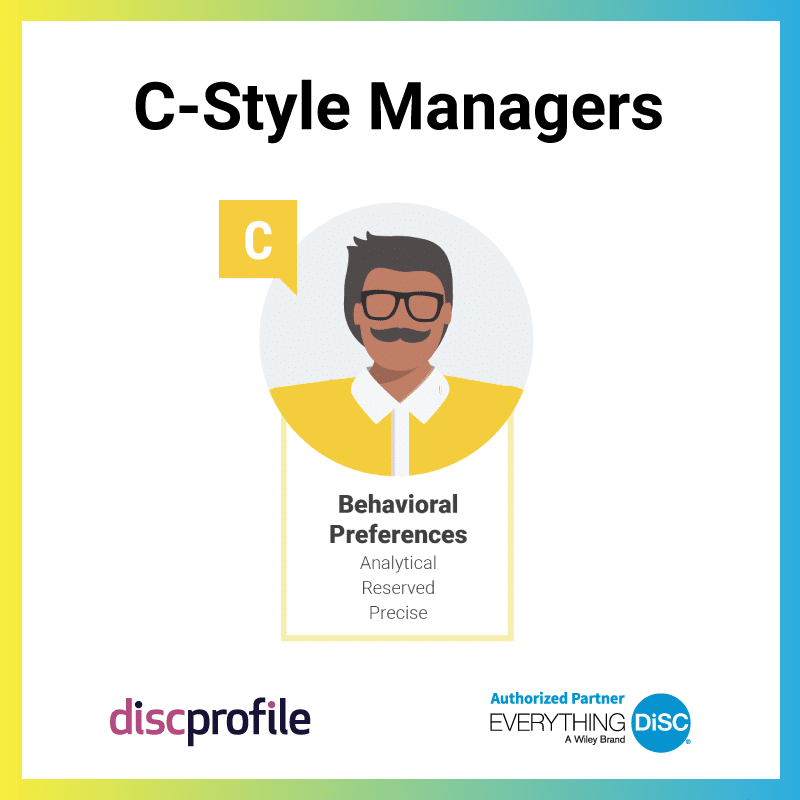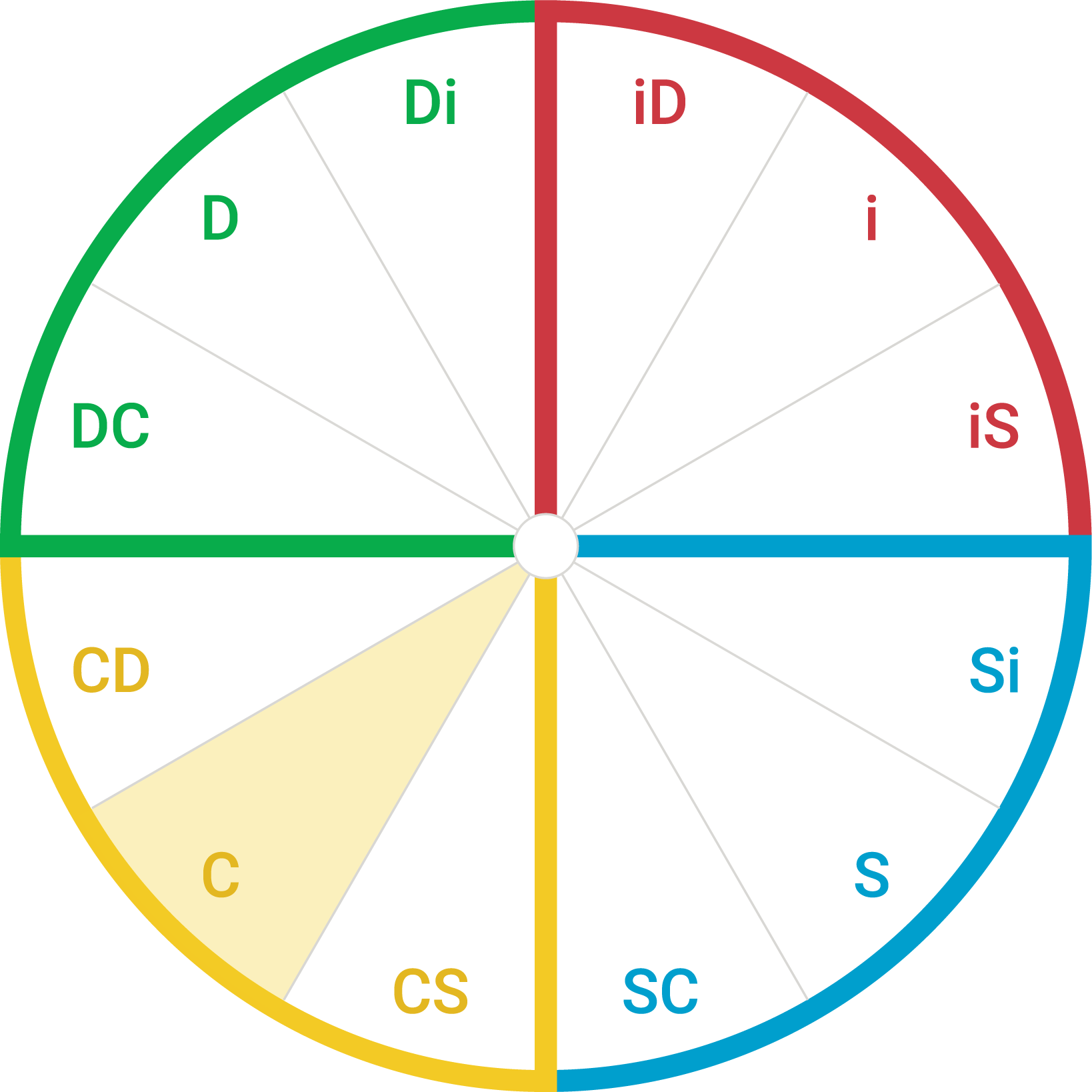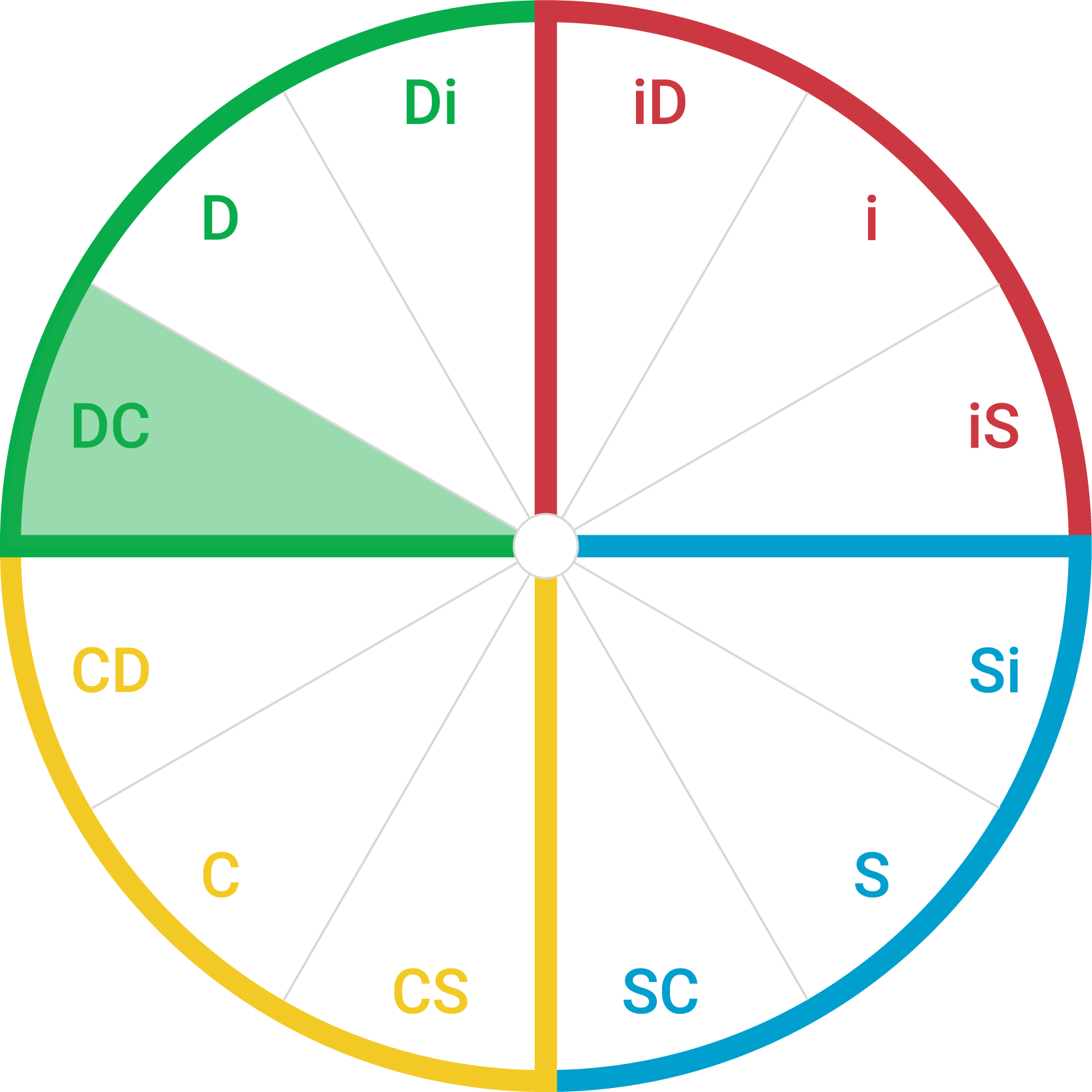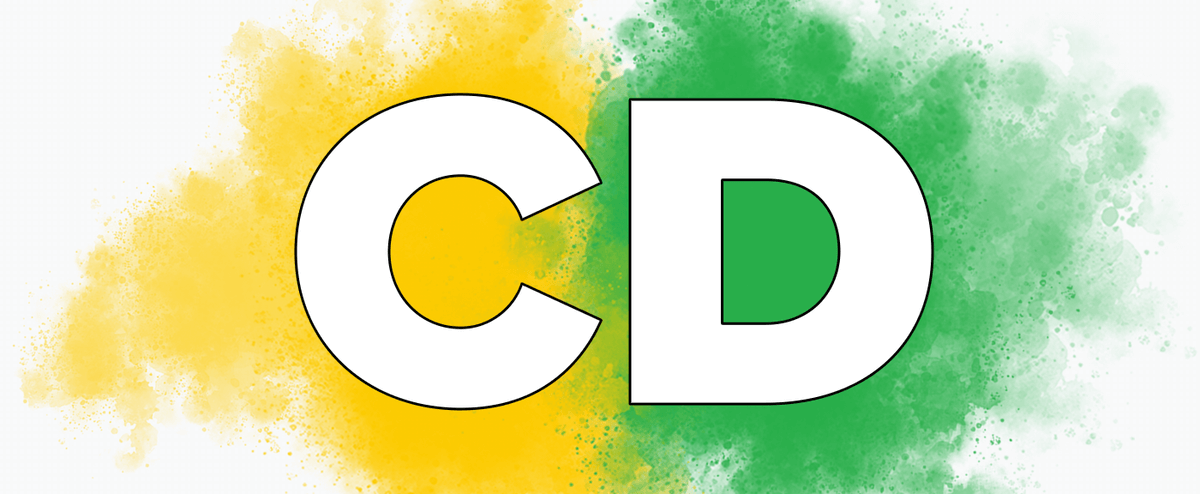
CD style
People with the DiSC CD style personality are strong critical thinkers who push through obstacles. They have a fundamental skepticism that can make them world-wary at times. CD types hold high standards for themselves and others. They value competence, control, and independence.
What do the ‘C’ and the ‘D’ in DiSC mean?
The C in the Everything DiSC® model stands for conscientiousness and the D stands for dominance. People whose DiSC profile shows a CD style display both the conscientiousness of the C style and the dominance of the D style. They are skeptical, stubborn, and disciplined. They enjoy a good challenge and will stick with it until they get the desired result.
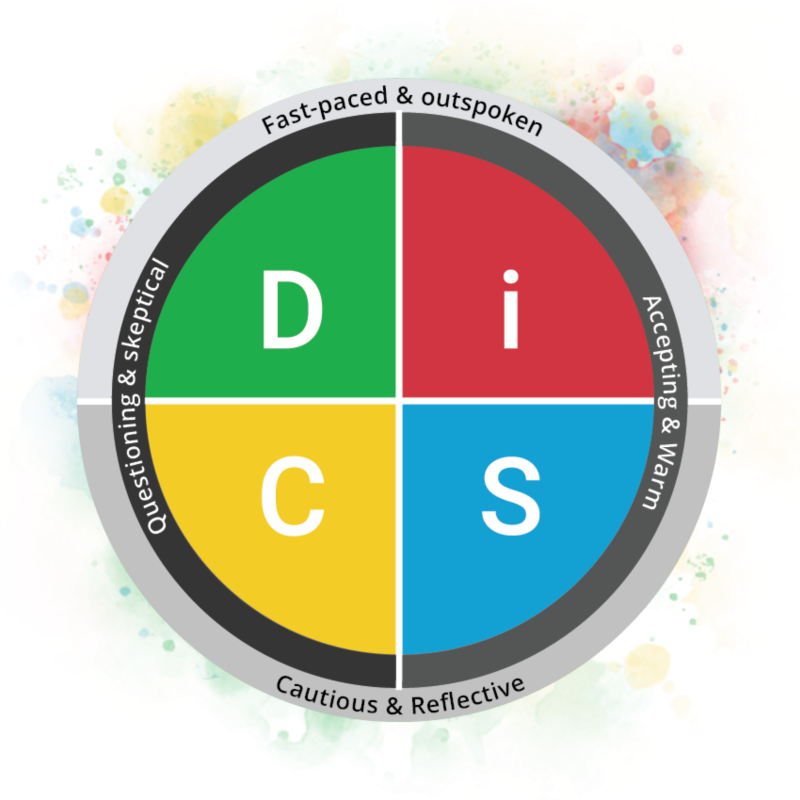
What is a DiSC style blend?
Every person is a mixture of all DiSC styles but will tend most strongly toward one or two. While some individuals' Everything DiSC assessment results will show a style with just one letter (D, i, S, or C), others will show a two-letter style (CD, Si, Di, etc.). All styles are equally valuable; a one-letter style is not better than a two-letter style or vice versa.
These two-letter styles are style blends. They show that an individual's personality type falls near the border between two of the four main quadrants.
Everything DiSC assessment takers can see this clearly in their profile by looking at where their dot appears on the DiSC map. If your dot is close to the border with another style, you probably show traits associated with that style, as well. Thus, C styles often share characteristics with the D or S styles.
The Everything DiSC test is calibrated to help you discover which main DiSC style quadrant you fall into, as well as giving finer-tuned results within that style.
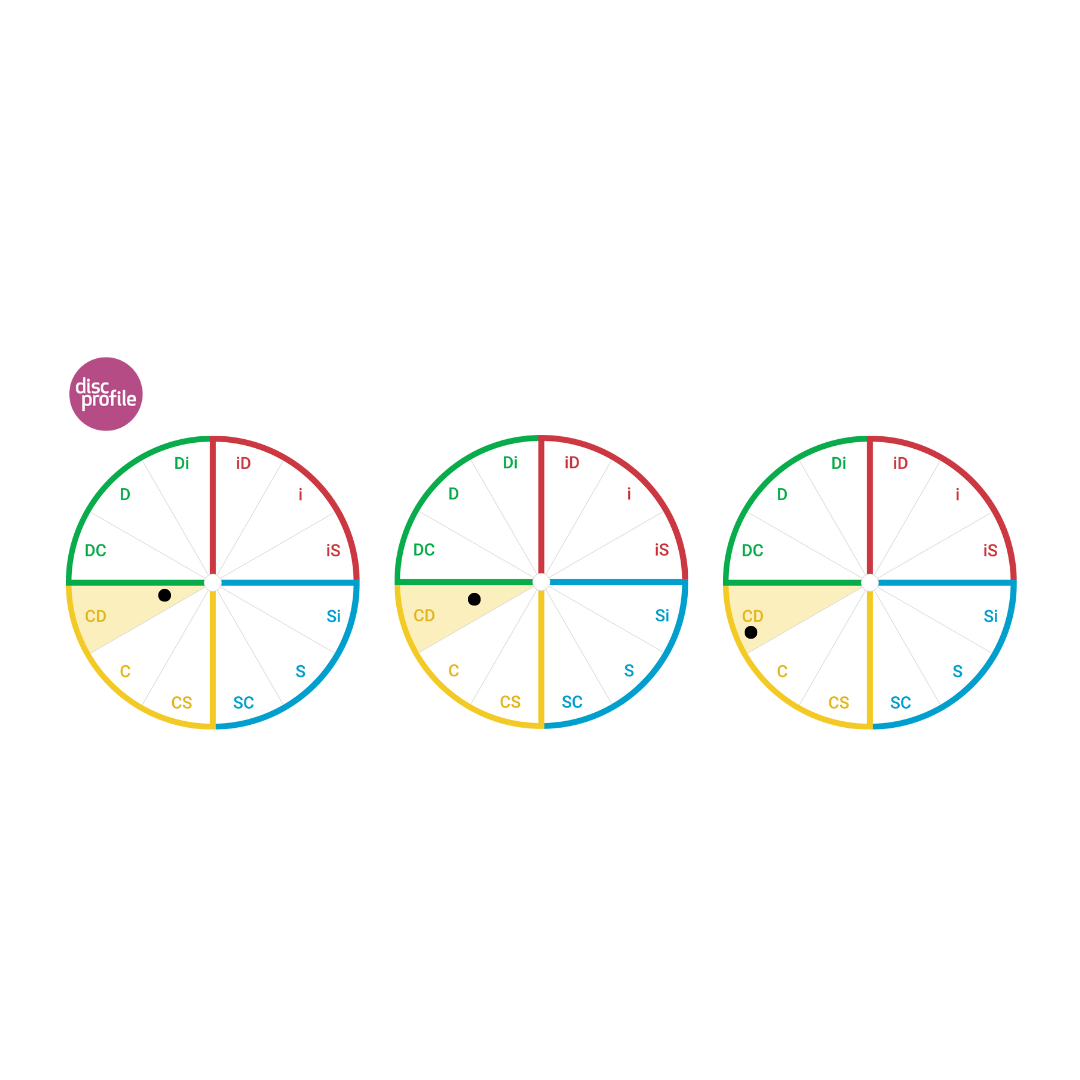
Dot placement
Human personality varies so much, so even within the same DiSC style, personality type shows up in different ways. People with CD styles share many high-level traits, but each CD-style person experiences and displays the style differently. The dot placement on your Everything DiSC profile will help you discover your unique place on the DiSC map.
For example, you might be strongly inclined to the CD style with your dot appearing on the far edge of the circle and between the C and D lines. Or you might be slightly inclined toward the style, with your dot appearing closer to the middle.
Learn more: DiSC dot and priorities explained
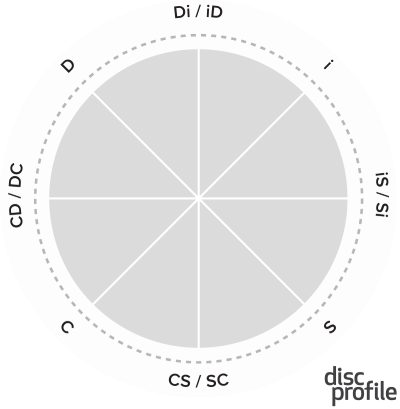
How do you get typed as a CD style in DiSC?
The DiSC model, at its foundation, is two-dimensional. It begins by measuring:
- pace (from fast-paced and outspoken to cautious and reflective)
- agreeableness (from questioning and skeptical to accepting and warm)
These two scales form the four primary DiSC quadrants.
However, the Everything DiSC assessment goes much deeper. This assessment will tell you not only your main DiSC style (D, i, S, or C) but which of the twelve style blends best represents you. In addition, you'll learn how strongly you align with those traits, as well as any extra priorities you might have outside your style.
A more detailed look at the DiSC map reveals the eight scales that divide the circle into twelve styles.
Everything DiSC assessments measure respondents on these eight scales: D (Dominance), Di/iD, i (influence), iS/Si, S (Steadiness), SC/CS, C (Conscientiousness), and CD/DC.
People with the CD style score highest on the CD/DC scale. Further, their responses show tendencies slightly more in line with the C style than the D style. People with C styles are composed and analytical. D-style folks are direct and strong-willed. CD styles are a blend of the two.


